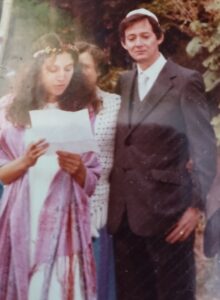After writing 30 poems during the past six Novembers, my December project is always to clean them up before sending them all–the good, the unfinished, and the hopeless–to the people who have so generously donated to this fundraiser to support the Center for New Americans.

Center for New Americans: cnam.org
I wrote about this process last year in a post called Poem Wrestling, but each year, I come to the table with a bit more learning, and also more compassion for myself as I work on shedding the egotistic aura of perfectionism and the numerous ways it sabotages my life. So what, if someone reads a not well rendered poem of mine and thinks badly of me or my writing abilities. I’m a big girl. I can handle it.
If I’m taking the time to revise these poems, it shouldn’t be out of preserving some image of myself whose truth is already questionable. Instead, revising should involve getting down dirty with each poem and asking myself, as Northampton Poet Laureate Franny Choi said so succinctly and enigmatically in a recent workshop I attended, what does the poem want?
And there is little that gives me more joy than when a poem bursts open into exciting new directions I had never anticipated, or when I can see in a pile of mud, a glint of a hidden sparkling stone that needs to be excavated and polished.
But enabling poems to find those pathways to self-realization can be difficult, especially when there are 30 of them that were quickly drafted.
Here’s what has helped me:
First, I read through all 30 and sort them into three categories which I label: Close (has integrity but could use tweaking), Medium (there’s something here, but still needs substantial work) and Mess (which means either huh? or yuck! depending on how self-deprecating I’m feeling that day).
Then, for each work-shift, I try to work on one poem from each category, reading through a few until I find one that appeals at the moment. For those in the Close pile, I read the poem out loud and listen for jarring word rhythms to eliminate and sounds that resonate. Then I pick through, taking out words that feel prosaic and flat, or images that feel worn and tired. I especially look at where I can replace a common verb with a stronger more evocative one, and if there are places I can substitute a word with a different number of syllables or slightly different sound to keep the internal “music” more consistent.
For a poem in the Medium category, I will eventually do all of the above, but first I’ll ask myself which parts are the sparkling rocks and which parts are mud trying to disguise itself as a sparkling rock. I’ll often chop off sections, and then add to the sections remaining to see if that brings me closer to what the poem wants.
The poems in the Mess category are the hardest to work with. These are the ones I’d likely toss if I hadn’t made the pledge to send all 30 poems to my funders. And often, I will file them in my Inactive archive after the whole process is complete. But sometimes a poem in this category just needs to emerge. For these poems, I first try to ask myself what the poem is really about, or remember what I was trying to say when I wrote it. Then, I look at what’s on the page and see which parts help reflect that message. I cut out all the parts that don’t seem relevant, (perhaps saving some of the images I might like for future poems) and start with what’s left. More times than I’d expect, I manage to rescue these poems once I’ve cut out the prose-laden, irrelevant and didactic places, and then continued revising according to the steps above.
Of course, my piles are fluid and sometimes a poem I first peg as Close gets demoted to Medium or even Mess. But this is counterbalanced by the Mess poems that eventually end up in the Close poems.
Does anything ever get finished? I’ll probably keep revising stuff until I die, but eventually poems fall into an additional category of Good Enough, and I offer them for publication.
And regardless, at the end of December, I send all 30 poems to my audience of funders, shoving aside any residual embarrassment. My revision process is effective enough that most of the poems by then are in the Close or Good Enough categories, with a few stragglers still in Medium and Mess. Most people don’t read all the poems, anyway, and I’m totally fine with that, giving them blanket permission to peruse or ignore. Life is short. We all have a lot to do.
And out of the 150 poems I started during these 30-poem Novembers between 2019 and 2023, 32 have been published. So, I guess someone somewhere also thought they were Good Enough.
Subscribe at https://ddinafriedman.substack.com
 Today, in writing group, a quote from Percival Everett’s Pulitzer Prize winning novel James, a brilliant and poignant retelling of Huck Finn from the enslaved character Jim’s point of view:
Today, in writing group, a quote from Percival Everett’s Pulitzer Prize winning novel James, a brilliant and poignant retelling of Huck Finn from the enslaved character Jim’s point of view:
 This morning, I’ve taken another step in returning to normalcy, writing with some of my favorite pals in the Forbes Library Zoom Group, where my friend and colleague,
This morning, I’ve taken another step in returning to normalcy, writing with some of my favorite pals in the Forbes Library Zoom Group, where my friend and colleague,  So, I’m grateful for routines, but also glad, that unlike my father, I’m more comfortable flitting in and out of them as needed. And once my latest batch of homemade granola is depleted, I’ll enjoy switching my breakfast routine to the several boxes of unopened muesli I brought home from New York, so I can keep remembering my father, whether or not I make it to the computer right afterwards.
So, I’m grateful for routines, but also glad, that unlike my father, I’m more comfortable flitting in and out of them as needed. And once my latest batch of homemade granola is depleted, I’ll enjoy switching my breakfast routine to the several boxes of unopened muesli I brought home from New York, so I can keep remembering my father, whether or not I make it to the computer right afterwards.

 Juliet might have said, a rose by any other name would smell as sweet, but in the writing world titles matter.
Juliet might have said, a rose by any other name would smell as sweet, but in the writing world titles matter.


